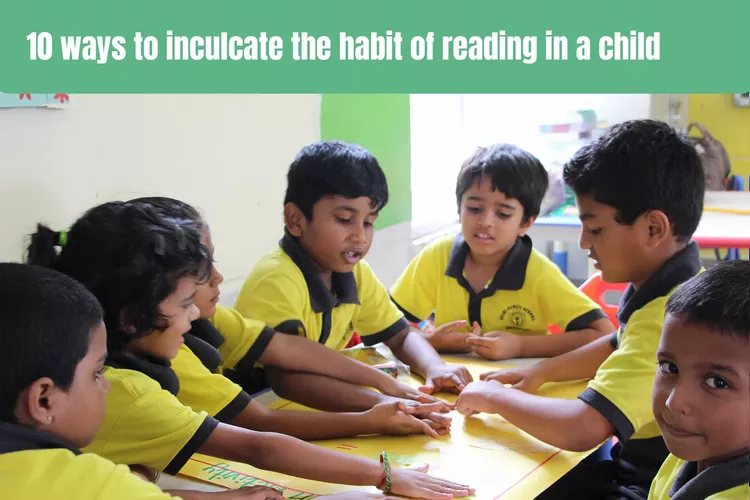While most children learn to read at school to be able to make sense of their textbooks, inculcating love and inclination towards reading requires some effort. There are some clear distinctions between those who enjoy reading, versus those who read the information because they have.
1. Make reading a part of your child’s daily routine:
Set aside a specific time each day for your child to read. This could be before bedtime, or during the quiet time after lunch. Consistency is key to developing a reading habit. In this way, your child will find reading as an essential everyday task. This will make reading a part of their daily routine.
2. Create a reading-friendly environment:
Make sure your child’s reading space is comfortable and well-lit. Provide them with a comfortable chair, cushion, or beanbag, and place a lamp or reading light nearby, and a shelf with their favorite books. A well-lit room with light wall colour prevents eyes from straining and improves the overall reading experience.
3. Read to your child:
Reading to your child helps a child gets exposed to a wide range of vocabulary as they learn to pay undivided attention and focus on the words being read. This inculcates a love for books and it also assists them to improve their listening and comprehension skills. Start with good story books, this will build their interest in the initial stages.
4. Set an example:
Children often emulate their parents. When your child sees you reading regularly, they are more likely to develop an interest in reading themselves. You can also talk to your child about your favorite book, quote, or poem.
5. Encourage independent reading:
As your child becomes quite interested in reading, encourage them to select books of their choice and read them on their own. Grant them freedom in their reading journey and praise them for their efforts. By following independent reading, kids get control of their learning and develop a sense of pride in their progress as a reader. This enhances self-esteem and confidence.
6. Provide a variety of reading materials:
Reading only educational books or books of one genre can get boring for your child. Provide your child with access to a wide range of reading materials. This can include poetry, fiction, non-fiction, picture books, newspapers, and comics. By reading different types of books, kids not only learn about different reading styles but also expand their knowledge in various fields of science, history, and literature.
7. Discuss what your child has read:
Encourage your child to share their opinions and thoughts about what they have read. Ask them open-ended questions, and convey interest in their answers. This will help to build their confidence and motivate them to continue reading. Express your curiosity in the topic while asking questions as they will love answering them.
8. Reward reading progress:
Praise and appreciate your child’s progress in improving their reading abilities. Like, if they complete their daily, weekly or monthly target of reading. Rewards could be in the form of certificates, presents, stickers, or even a small treat. You can even gift them more interesting books as a trophy for achieving the targets.
9. Take trips to the library:
Visiting the library is a great way to expose your child to the vast array of reading materials available. The environment in a library is quiet, studious, and organized with books arranged on the shelves and people reading with utmost concentration. Encourage your child to take out a book and visit the library on a regular routine.
10. Make reading fun:
It is important to follow a creative approach to build any habit in your child. The more fun your child has while reading, the more they will find reading as an interesting task and are likely to continue reading. Play games, have a reading competition, or even make it a part of a treasure hunt. You can also plan one day a week for the family reading competition where all members of the family can sit together and read.
Fostering a love for reading in your child takes effort and a careful plan. Include reading in their daily routine, make a comfy reading spot, show them by reading yourself, and offer different types of books. Celebrate their reading successes with rewards, making the journey enjoyable and fulfilling for both parents and children.




